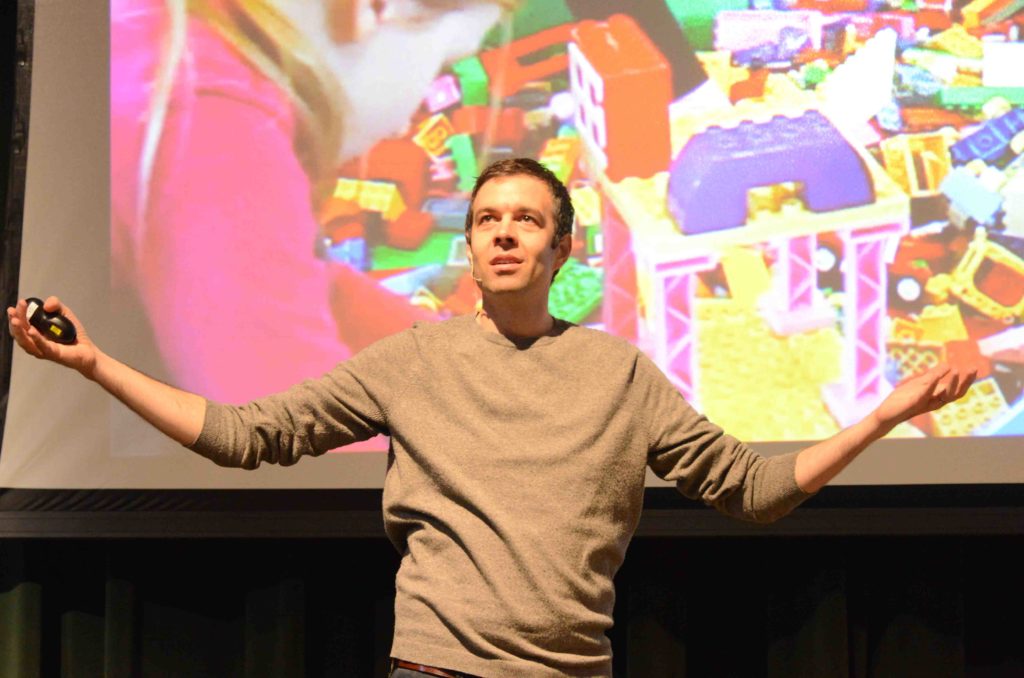Manufacturing, Innovation, and Entrepreneurship: A Morning with VulcanForms
On November 1, students and faculty assembled in the Smith Theater for an inspiring Hall co-presented by John Hart and Martin Feldmann of VulcanForms, a Massachusetts-based additive manufacturing (3D printing) startup. These two mechanical engineers and entrepreneurs began their presentation with a brief history of manufacturing. Beginning with the Gutenberg printing press in the mid-1400s up through the computer chips and vaccines we use today, Dr. Hart and Mr. Feldmann described how manufacturers, as they describe, “move fast and make things,” and in the process can change the course of human history. The two engineers then took the boys through their company’s journey—from a prototype in Mr. Feldmann’s living room, to a small and humble team sharing an office space, to a major innovator in their industry.
At its core, they described, manufacturing is taking raw materials and delivering sophisticated finished products at a high rate of output. Though manufacturing has increased globally in recent years, in the United States it is declining. Historically, this was not the case. The U.S. was once a great “shiny beacon” for manufacturing, reaching its peak during World War II. Using Henry Ford’s assembly line approach, the U.S. cranked out complicated mechanisms of war like the B-29 SuperFortress. Following this era, America learned the German manufacturers’ secrets to utilizing the heavy-press forge to revolutionize industries throughout the 1950s. The heavy-press technology of the postwar era is still used today. Even locally, a 50,000-ton press is active at the Wyman-Gordon Company in Grafton, Massachusetts.
After moving through all this history, Dr. Hart and Mr. Feldmann shared how pervasive manufacturing is in our everyday lives. It has a massive impact on today’s economy, as well as today’s climate considerations, and for the U.S. to return to its former status as a manufacturing hub there needs to be a dramatic change through the use of advanced—and cleaner—technologies. VulcanForms is hoping to lead this shift through innovation in 3D printing. The process of crafting various metal products using “laser powder bed technology” at a massive scale allows VulcanForms to break from the traditional model of producing a single end-product in a factory in favor of producing multiple commercial items for use in the mechanical, medical, and computer industries. Today, their facilities produce everything from car tire molds, to components for hip replacement.
Over the past eight years especially, Roxbury Latin has committed to inspiring innovation in students through coursework in science, technology, engineering, and mathematics—STEM. The day’s speakers drove this home. They told our students that it is “time to build” in America—in ways that are more productive, more efficient, more accurate, and cleaner—and students like them would help lead the next phase of innovation in manufacturing and related fields. Hopefully, they also helped fuel the entrepreneurial spirit in our boys.
Both Dr. Hart and Mr. Feldmann stayed on campus through the morning, meeting with students in Engineering and Physics classes.

